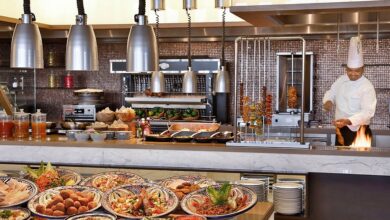Why Is Charleston SC Called the Holy City Guide
Why Is Charleston SC Called the Holy City

Charleston, South Carolina, is one of the most historic and beautiful cities in the United States. Famous for its cobblestone streets, elegant architecture, and coastal charm, Charleston is also affectionately known as The Holy City. But have you ever wondered why is Charleston SC called the Holy City?
The nickname has deep historical and cultural roots, stretching back to the city’s early colonial days. It reflects the city’s longstanding reputation for religious tolerance, its abundance of historic churches, and its skyline filled with steeples. This guide explores the fascinating story behind Charleston’s spiritual identity and explains why the name “The Holy City” continues to hold meaning even today.
The Origin of the Name Holy City
The origins of Charleston’s nickname go back more than 300 years to when the city was founded in 1670 by English settlers. Unlike many other colonies of the time, Charleston quickly became known for its acceptance of people from different backgrounds and beliefs.
In an era when religious persecution was common in Europe, Charleston offered something rare freedom of religion. The city welcomed settlers from England, France, Scotland, Ireland, and even the Caribbean. Many of these immigrants brought with them different faiths, including Anglican, Presbyterian, Catholic, Baptist, and Jewish traditions.
This atmosphere of acceptance led to the construction of numerous churches and places of worship throughout the city. Over time, Charleston became known for its religious diversity, and locals proudly referred to it as The Holy City because of its many churches and commitment to faith-based coexistence.
Charleston’s Rich Religious Heritage
Charleston’s religious roots run deep. In the 18th and 19th centuries, the city was home to some of the most influential congregations in the American South. Many of these churches played important roles in the community, not only as places of worship but also as centers of education, charity, and social life.
Charleston’s religious diversity was unique for its time. Protestants, Catholics, and Jews lived side by side and practiced their faith freely. This was largely due to the city’s early leadership, which valued tolerance and viewed religious freedom as essential to a thriving society.
Today, you can still feel the spiritual presence of these early communities. Walking through Charleston’s historic district, you will encounter a remarkable number of churches and synagogues, each with its own story and architectural charm.
Iconic Churches and Religious Landmarks
One of the main reasons why is Charleston SC called the Holy City is its many historic churches and religious buildings. The city’s skyline is famous for its steeples that rise above the rooftops, guiding ships that approach from the harbor. Some of these landmarks are over two centuries old.
St. Michael’s Church
Built in the 1760s, St. Michael’s Church is one of Charleston’s oldest surviving churches. Its elegant white steeple is one of the most recognizable features of the city.
St. Philip’s Episcopal Church
Located on Church Street, St. Philip’s is another architectural masterpiece. Established in the 1680s, it symbolizes Charleston’s deep spiritual roots and commitment to faith.
Kahal Kadosh Beth Elohim Synagogue
Founded in 1749, this is one of the oldest Jewish congregations in the United States. The synagogue represents Charleston’s early embrace of religious freedom and diversity.
The Circular Congregational Church
Known for its distinctive circular design, this church dates back to the 1600s and stands as one of the oldest congregations in the South.
Each of these sites represents a piece of Charleston’s spiritual and cultural story, showing how faith shaped the city’s development and reputation.
The City’s Distinctive Skyline
Charleston’s skyline is unlike any other in the country. Instead of towering skyscrapers, it is defined by church steeples, bell towers, and historic domes. For sailors arriving by sea, these spires served as beacons guiding them safely into Charleston Harbor.
The city even passed zoning laws to preserve this unique skyline. There are strict regulations on building height in the historic district, ensuring that modern structures do not overshadow the centuries-old churches that have come to symbolize the Holy City.
Standing on the Battery or along East Bay Street, visitors can see a skyline filled with steeples reaching toward the sky a living symbol of faith and history.
Religious Tolerance and Cultural Harmony
A defining reason why Charleston SC is called the Holy City is its long tradition of religious tolerance. From its earliest days, Charleston stood apart as a place where people of different faiths could worship freely.
In the 1700s, Charleston was one of the few cities in the British colonies that allowed Jewish residents to openly practice their religion. Similarly, Protestant denominations that faced persecution elsewhere found safety and acceptance here.
This inclusive spirit extended beyond religion and helped shape Charleston’s cultural identity. The city became a melting pot of traditions, ideas, and artistic influences. That legacy of openness remains part of Charleston’s charm today.
Modern Significance of the Holy City Title
In modern times, Charleston continues to embrace its title as The Holy City. While the name originated from its religious heritage, it now also reflects the city’s broader values of community, peace, and hospitality.
Visitors to Charleston today can see how faith remains intertwined with daily life. Sunday church bells still echo through downtown streets, and many of the city’s oldest religious buildings are open to the public for tours and worship.
Beyond its religious meaning, the nickname now also symbolizes Charleston’s respect for history, architecture, and cultural unity values that have defined it for more than three centuries.
Charleston’s Faith Based Events and Celebrations
Charleston’s religious heritage is celebrated throughout the year with festivals and community events. These gatherings honor the city’s diverse faiths and highlight its inclusive traditions.
Some popular faith-based and cultural events include:
-
Christmas candlelight concerts in historic churches
-
Easter sunrise services on local beaches and at Marion Square
-
Interfaith Thanksgiving services uniting multiple congregations
-
Religious heritage tours exploring the city’s historic worship sites
These events are not only spiritual gatherings but also opportunities for residents and tourists to experience Charleston’s welcoming community firsthand.
Interesting Facts About the Holy City
Here are some fascinating facts that highlight why Charleston SC is called the Holy City:
-
Charleston’s early city plan included areas designated for various denominations, encouraging religious diversity from the beginning.
-
The city’s church steeples were historically used as navigation markers for ships arriving from the Atlantic.
-
Charleston’s skyline is one of the few in the United States protected by law to preserve its historic religious landmarks.
-
The term “Holy City” began appearing in travel literature in the 19th century and has been used ever since to describe the city’s spiritual character.
-
Charleston is home to some of the oldest continuously operating congregations in the United States.
These facts demonstrate how faith and freedom have always been central to Charleston’s identity.
Conclusion
Charleston’s nickname, The Holy City, is far more than just a charming label. It is a reflection of the city’s heart, history, and values. The abundance of churches, the tradition of tolerance, and the commitment to religious freedom have all played a role in shaping this remarkable city.
Whether you are a visitor exploring its cobblestone streets or a local attending Sunday service, Charleston’s faith-filled past continues to inspire awe and admiration. Its skyline of steeples and domes tells the story of a city that values both its spiritual and cultural roots.So the next time you wander through downtown Charleston and look up to see the steeples reaching toward the sky, you will understand exactly why Charleston SC is called the Holy City a timeless symbol of faith, freedom, and community.




